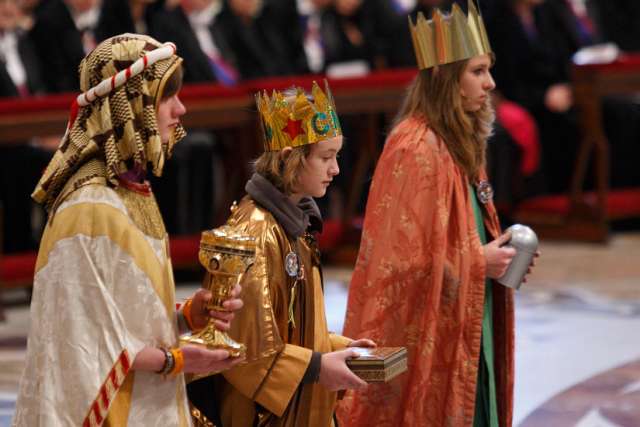We stand in need of a similar prophecy today. Hopelessness and fear have gained a strong foothold in human hearts and minds. The peace and decrease in violence for which we all yearned has not materialized. Economic prosperity is a reality for a select few, while so many others still struggle to stay afloat. There is a general disillusionment with “the system” and even a great deal of skepticism about humankind having much of a future. From a purely human point of view, things can seem pretty hopeless. The Scriptures, however, remind us constantly that it is not our show but God’s.
Just when we least expect it, and usually in an equally unexpected way, God shows His hand in a spectacular and unmistakable manner.
As far as Isaiah was concerned, God would be revealed in a way that would change everything and dispel the world’s darkness. Although humans might be instruments of this divine action, its instigation and conclusion would be entirely God’s doing. Our chief contribution lies in opening our minds and hearts to receive God’s message. In order to do this it is necessary to set aside negativity, resentment, fear and selfishness. In a sense, we create the conditions for God’s action.
Isaiah challenged people to dare to believe that God was still present and at work in the world. God was not unmoved by the human plight — at the proper moment, God’s compassion and mercy would be manifested in action. Our own time calls for similar faith and commitment — it is more important than ever that we live in Isaiah’s vision rather than the darkness around us.
Paul knew this well and he joyfully proclaimed the secret that had been revealed to him. God had been at work since before the foundation of the world planning the redemption of humanity. At long last, in a crescendo of compassion and mercy, God had sent Jesus into the world to remove the barriers that separated humanity and to form one people. In this new order, no one would be excluded — there would be no fences, gates or keep-out signs. This represented God’s will and the unfolding of God’s plan. Human actions that thwart this divine intention nudge God out of the realm of human activity. It is no wonder that modern people bewail the absence of God in the world — God has not gone anywhere but we have.
The compassionate designs of God were not given to any privileged group or individual. The first to pay homage to Jesus were from a distant land and another religion. They were in all likelihood Zoroastrian priests, and as the text tells us, well-versed in ancient astrological science. Their own yearning and searching had prompted them to scan holy books and the heavens themselves for signs of God’s impending intervention in human history.
The day came when they left everything behind to embark on a long and arduous journey to reverence the newborn king. When divine activity is concerned, labels, categories and boundaries mean very little. While perhaps not an actual star, the magi literally followed the light that was manifested to them wherever it led. The Spirit of God in our own age calls us to unity, reconciliation, mercy and the renunciation of the hatred and selfishness that has made the world a difficult and unhappy place to live in. Something truly new is called for.
In 2015, perhaps we can begin to question the status quo, how we think, the ideologies we follow and traditions that imprison us. The magi stand as an example. The light will indeed lead us away from the familiar, but also to what is real, life-giving and spiritually rich.


